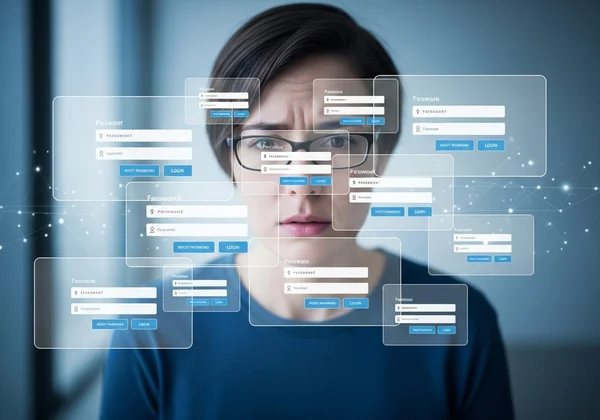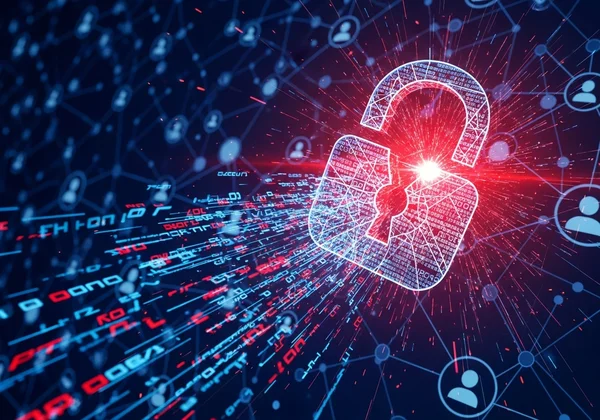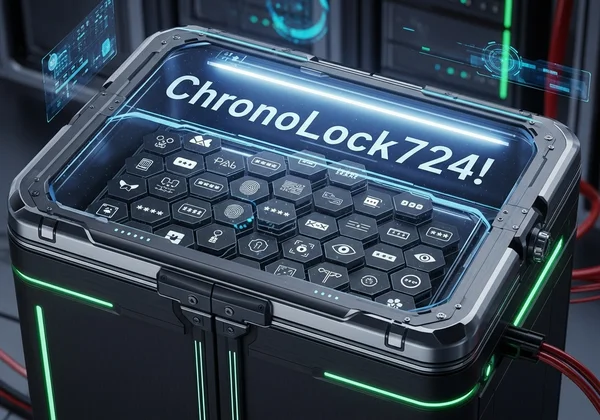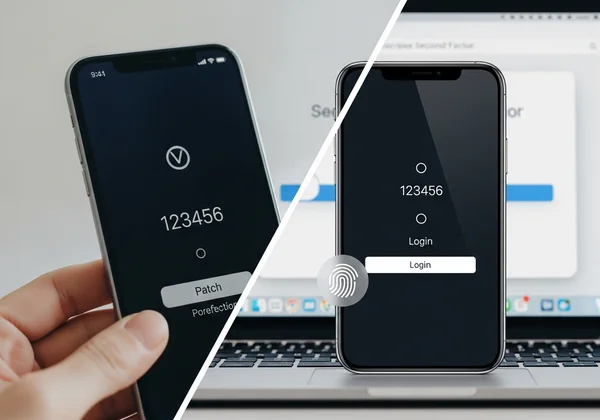Password Fatigue: Solutions with a Strong Password Generator
Feeling overwhelmed by countless login screens and the constant pressure to create unique, complex passwords? You're not alone. The digital world demands dozens of unique keys, and the mental load of creating, remembering, and managing them is a genuine modern-day burden. This feeling of exhaustion has a name: password fatigue. Are you tired of trying to remember complex passwords?

Let's dive into the psychology of password fatigue – its causes, hidden dangers, and, most importantly, practical solutions that won't add to your stress. It’s time to stop the cycle of forgetting and resetting. You can achieve strong digital security without sacrificing your peace of mind, and the first step is understanding the challenge. With the right strategies and a powerful secure password generator, you can transform anxiety into confidence.
Understanding Password Fatigue: Why "Too Many Passwords" Leads to Stress
The demand for unique credentials for every app, service, and account has created a significant cognitive strain. This isn't just a minor inconvenience; it's a psychological phenomenon that directly impacts our online behavior and security. When we feel overwhelmed, we tend to take shortcuts, often with serious consequences.
What Exactly is Password Fatigue? (And Why It's a Real Problem)
Password fatigue is the mental and emotional exhaustion that comes from having to manage an ever-growing number of complex passwords. Think of it like decision fatigue. Every day, you make hundreds of small choices, and your capacity to make good ones diminishes over time. Similarly, each time you're prompted to create a new, "strong" password—one with uppercase letters, lowercase letters, numbers, and symbols—it chips away at your mental resources.
This fatigue becomes a problem when it leads to poor security practices. Instead of creating another unique password, you might reuse an old one. You might create a simple, easy-to-guess password just to get through the sign-up process. These actions, driven by a desire for simplicity and relief, open the door to cyber threats like credential stuffing, where attackers use one leaked password to try and access your other accounts.
The Psychological Toll of Password Overload
The pressure to maintain perfect digital hygiene creates a low-grade, persistent anxiety for many people. This password stress stems from several fears: the fear of being locked out of an important account, the fear of forgetting a critical password for banking or email, and the overarching fear of a data breach.
This mental clutter forces our brains to juggle dozens of abstract, random strings of characters, which is not how human memory is designed to work. We are wired to remember stories, faces, and meaningful phrases, not P@ssw0rd!23. The constant struggle to recall this information creates frustration and a sense of helplessness, making the entire online experience feel more like a chore than a convenience.
The Hidden Dangers of Reusing Weak Passwords
The most common and dangerous byproduct of password fatigue is password reuse. When you're mentally drained, using the same password for your social media, email, and online shopping accounts feels like an easy win. However, it creates a single point of failure for your entire digital identity.
Data breaches happen daily. When a website you use is compromised, the hackers often publish lists of emails and passwords. If you've reused that same password elsewhere, criminals can now access your other, more sensitive accounts. This is how a minor breach at an obscure online forum can escalate into someone gaining access to your primary email or financial information. Weak passwords, like "123456" or "password," are even worse, as they can be guessed by automated software in seconds. The temporary relief from password fatigue isn't worth the long-term risk.

Beating Password Fatigue: Smart Strategies for Strong Security
Instead of giving in to weak credentials, the key to beating password fatigue lies in smarter strategies that work with your natural memory, not against it, and powerful tools to handle the complexity. By shifting your approach, you can build a fortress around your digital life without the mental strain.
Embrace Passphrases: Secure and Memorable (Leveraging Our Generator)
One of the most effective ways to combat password fatigue is to switch from complex passwords to long passphrases. A passphrase is a sequence of words that forms a sentence or phrase. For example, Correct-Horse-Battery-Staple is far more memorable than tr0ub4dor&3, yet it is exponentially stronger due to its length.
The beauty of passphrases is that they leverage our brain's natural ability to remember language and stories. They are easy to recall and type but incredibly difficult for computers to crack through brute-force attacks. You can easily create one using a passphrase generator, which combines random words into a secure, easy-to-remember sequence. This single change can dramatically reduce your cognitive load while simultaneously boosting your security.
The Power of a Password Manager: Your Digital Vault
You shouldn't have to remember dozens of unique passwords. That's a job for a machine. A password manager is a secure, encrypted application that stores all your login credentials in one place, protected by a single, strong master password.
When you need to log in to a website, the password manager can automatically fill in your credentials. When you need to create a new account, it can generate a long, completely random password for you. This approach solves the password fatigue problem at its root. You only need to remember one thing: your master password (which should ideally be a strong passphrase!). Everything else is securely managed for you, eliminating the need to reuse or simplify your passwords ever again.

Two-Factor Authentication (2FA): An Extra Layer of Protection
Two-Factor Authentication (2FA) is a critical security layer that acts as a safety net, significantly reducing password-related anxiety. Even if a criminal manages to steal one of your passwords, 2FA prevents them from accessing your account because they won't have the second piece of required information.
This second "factor" is typically a code sent to your phone via an app or SMS, or a biometric confirmation like a fingerprint. Enabling 2FA on all your important accounts—especially email, banking, and social media—provides immense peace of mind. It means a single compromised password is no longer a catastrophe, which helps alleviate the constant pressure of maintaining flawless password security.

Customize Your Security: Length, Characters, and Randomness
Different websites have different password requirements. Some demand special characters, while others have length limitations. Manually trying to create passwords that meet these unique rules adds another layer of frustration.
This is where a flexible tool becomes invaluable. A custom password generator allows you to specify the exact parameters you need, such as length, and whether to include uppercase letters, numbers, or symbols. You can instantly generate a password that meets any requirement without the trial-and-error. This puts you back in control, allowing you to create strong, compliant passwords effortlessly for every single account, ensuring both security and convenience.
Reclaim Your Digital Peace of Mind: Security Without the Stress
Password fatigue is a real and draining experience, but it doesn't have to be your reality. By understanding its psychological roots, you can adopt smarter, more effective strategies to protect your digital life. Moving away from the impossible task of memorizing random characters and toward a system of passphrases, password managers, and 2FA is the key to lasting security and mental clarity.
Stop letting password management be a source of stress. Take the first step today by creating a strong, memorable passphrase for your most important account. Empower yourself with tools that work for you, not against you. Visit our free online tool to see just how easy it can be to generate truly strong credentials in seconds.
Frequently Asked Questions About Password Fatigue & Security
How can I create a truly strong password without making it impossible to remember?
The best method is to use a passphrase. Instead of a short, complex password like !y7$kP#a, create a longer phrase made of four or more random words, such as Blue-Dinosaur-Flies-Loudly. It's significantly easier for a human to remember but much harder for a computer to guess. For all other accounts, use a password manager to generate and store completely random passwords that you don't need to remember at all.
What exactly is a passphrase, and why is it considered secure?
A passphrase is a series of words used as a password. Its security comes from its length. While a typical 8-character password has a vast number of possible combinations, a 4-word passphrase chosen from a large dictionary has trillions more. A brute-force attack, which tries every possible combination, would take centuries or longer to guess a good passphrase, making it an exceptionally secure option.
Are online password generators like our tool safe to use?
This is an excellent and crucial question. The safety of an online password generator depends entirely on how it works. Many are safe, but the most trustworthy ones operate purely on the client side. This means the password generation happens directly in your browser on your computer. A tool like our safe password generator never sends any information to its servers—it has no knowledge of the passwords you create and stores absolutely nothing. This commitment to client-side generation ensures your new password remains completely private and secure.
How long should my passwords be for optimal security?
Current cybersecurity standards recommend a minimum of 12-16 characters for a traditional password that mixes character types. However, length is the single most important factor in password strength. For passphrases, a minimum of four words is a strong starting point. The longer your password or passphrase, the more secure it is.
What's the best way to manage all my different passwords?
The gold standard for managing multiple passwords is to use a combination of two tools: a trusted password generator and a reputable password manager. Use the generator to create a unique, strong, and random password for every new account. Then, save that password immediately in your password manager. This eliminates the burden of memory, prevents password reuse, and provides the highest level of security against common cyberattacks.